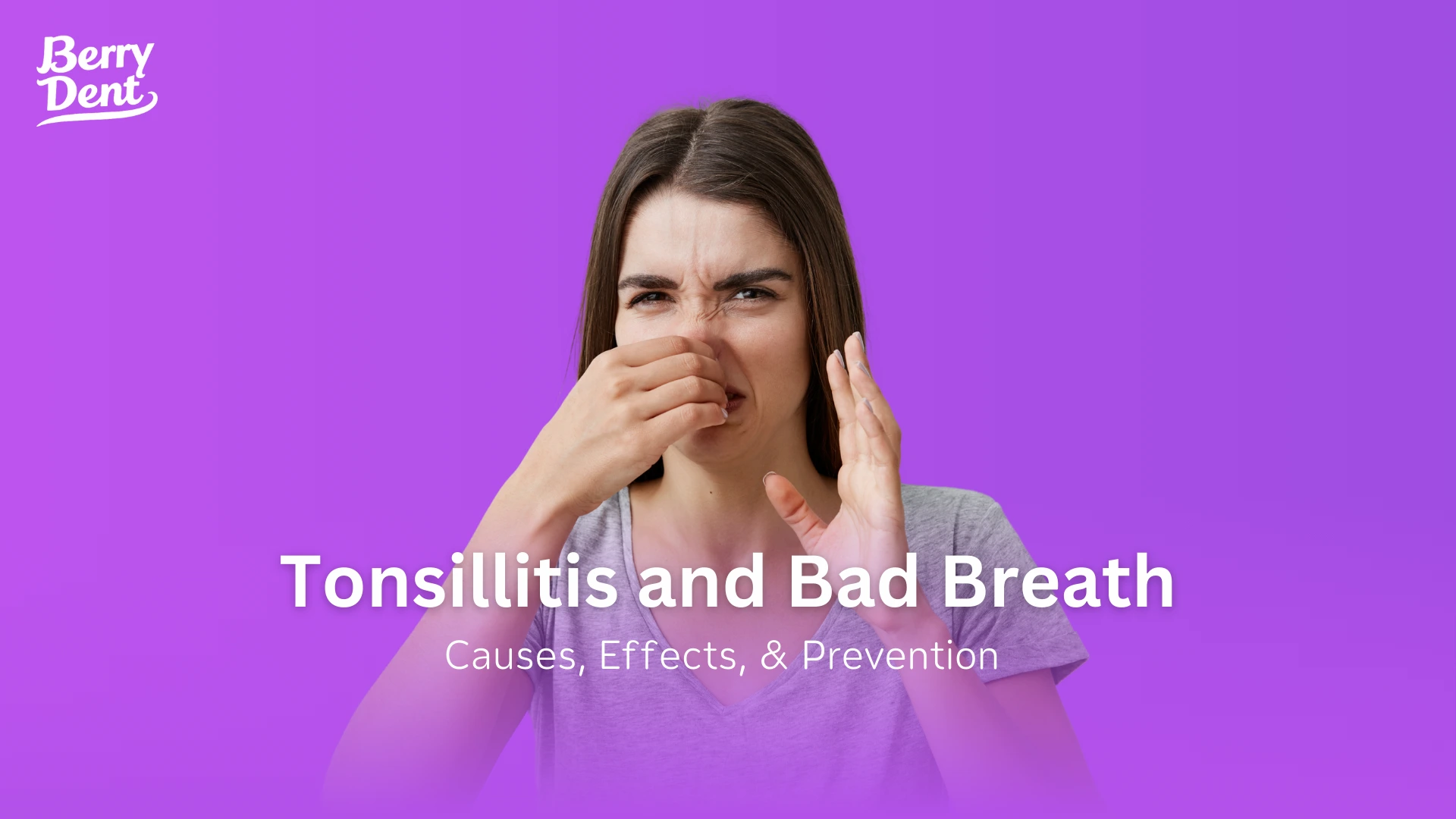Did you know tonsillitis isn’t just a sore throat? It can lead to persistent bad breath! Affecting all ages, untreated tonsillitis can become a chronic health issue. Berry Dent explores the causes, effects, and prevention of tonsillitis.
What is Tonsillitis?
Tonsils are lymph nodes at the back of the throat, filtering germs entering through the mouth and nose. Excessive bacteria or viruses can cause tonsil inflammation (tonsillitis). Common symptoms include sore throat, difficulty swallowing, high fever, and bad breath. Some may have pus or white spots on their tonsils.
Why Does Tonsillitis Cause Bad Breath?
Tonsillitis can lead to tonsil stones (tonsilloliths), which are accumulations of food debris, dead cells, and bacteria in tonsil crevices. These stones cause bad breath due to the bacteria releasing foul-smelling chemicals. Brushing and mouthwash often can’t eliminate this odor.
Consequences of Untreated Tonsillitis
Many dismiss tonsillitis as a simple sore throat, leaving it untreated. However, the effects can be more serious:
- Chronic Bad Breath: Affecting confidence and social interactions.
- Severe Infection: The infection can spread to other areas like the ears or sinuses.
- Breathing Problems: Swollen tonsils can obstruct airways.
- Worsening Oral Health: Increasing the risk of other oral health issues.
Preventing Tonsillitis
1. Maintain Good Oral Hygiene
Regular brushing twice daily and flossing is essential for removing food particles and bacteria that can accumulate in your mouth. This basic hygiene practice helps prevent the spread of bacteria to your tonsils, reducing the risk of infection and inflammation.
2. Stay Hydrated
Drinking adequate water throughout the day helps maintain throat moisture and supports natural bacterial defense mechanisms. Proper hydration helps flush out harmful bacteria and prevents them from colonizing the tonsil area, making it an effective preventive measure against tonsillitis.
3. Avoid Trigger Foods
Foods that are fatty or fried can create an environment conducive to bacterial growth in your mouth and throat. These foods may leave residue that bacteria can feed on, increasing the risk of tonsil infection. Choosing healthier alternatives can help maintain better oral and throat health.
4. Regular Dental Checkups
Biannual dental visits allow professionals to monitor your oral health and catch potential issues early. These checkups include cleaning and examination that can prevent bacteria buildup that might lead to tonsillitis.
5. Treat Sore Throats Promptly
Early intervention when experiencing throat discomfort is crucial. Simple remedies like gargling with warm salt water can provide relief and help prevent the condition from worsening. If symptoms persist, seeking medical attention ensures proper treatment before complications develop.
Tonsillitis may seem minor, but if left untreated, it can cause chronic bad breath, impacting confidence and overall health. Preventing and managing oral health, as Berry Dent advises, is crucial for fresh breath and preventing tonsillitis.


